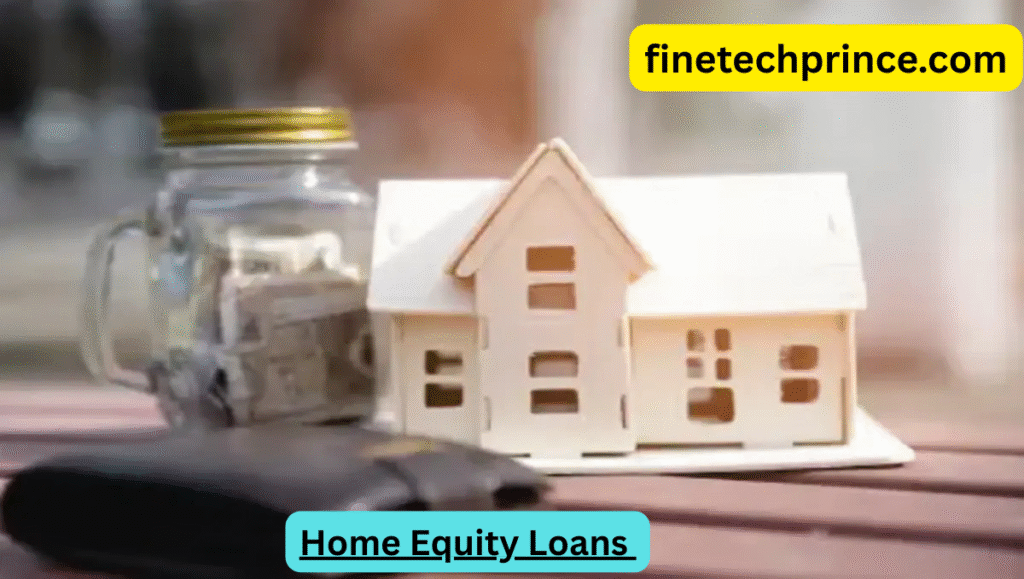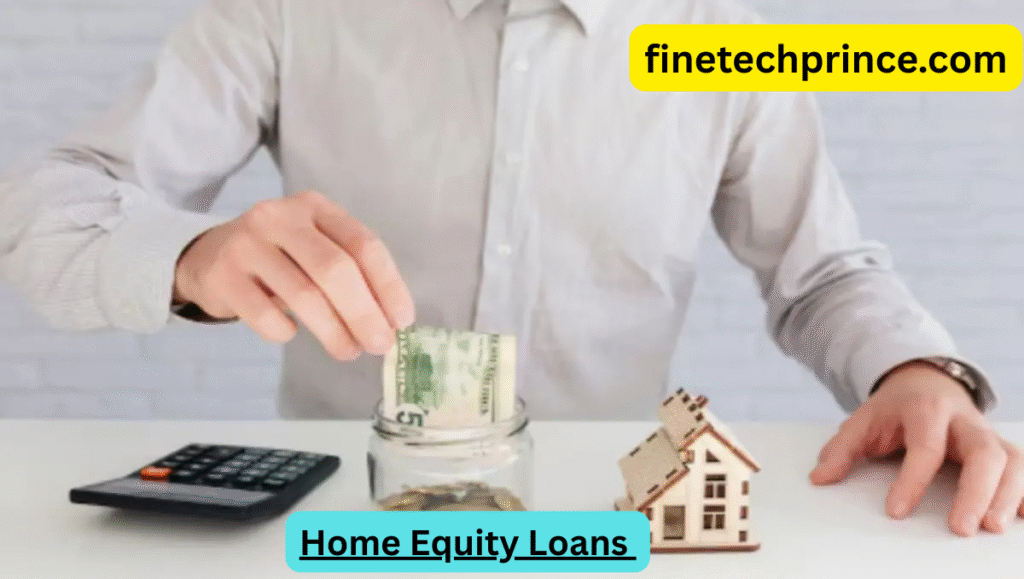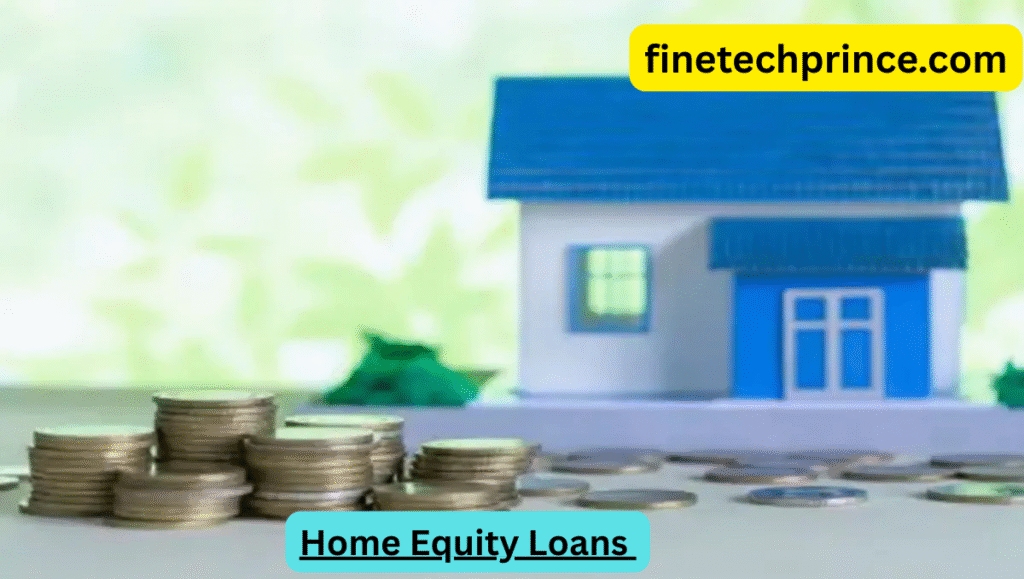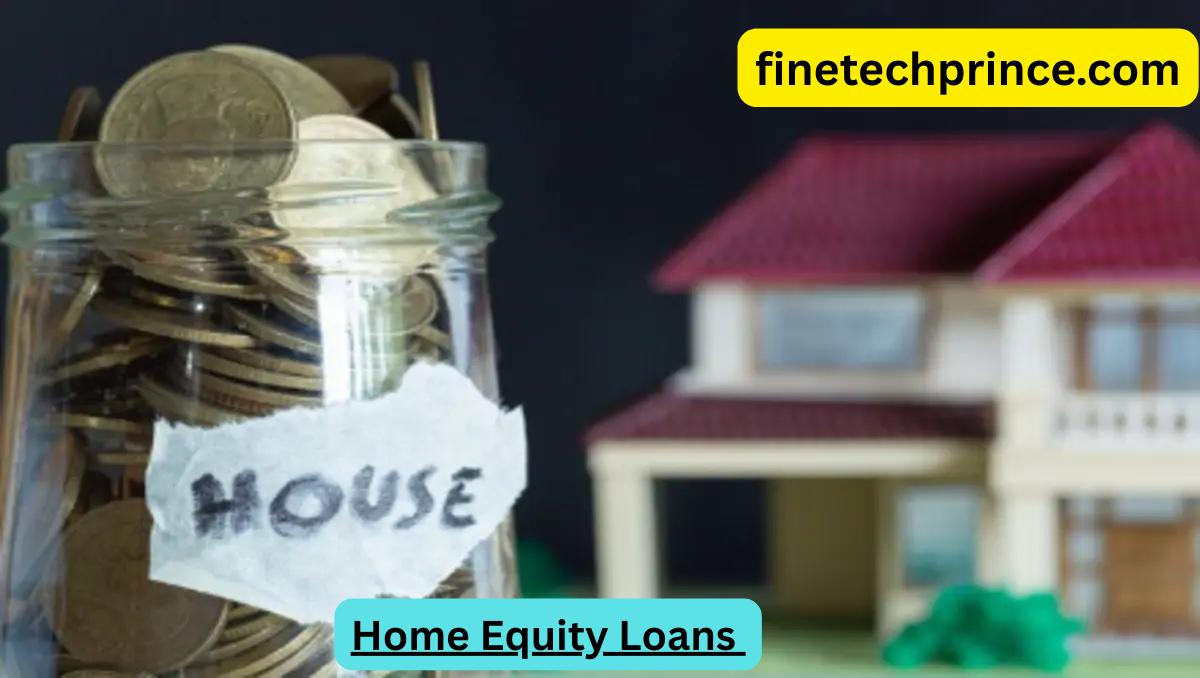Welcome to our guide to the rates on home-equity loans. If you own a home, you probably know what a “home-equity loan” is. A lot of individuals utilize this financial instrument to pay for big things like fixing up their homes, medical costs, school, or paying off debt. But before you apply, you need to know what the interest rate is. The interest rates on home-equity loans can have a huge effect on how much you have to pay back.
In this article, we’ll explain what home-equity loan rates are, how they’re established, what affects them, and how to obtain the best deal.
What does it mean to have a home equity loan?
A home-equity loan is a form of loan that lets you borrow money against the value of your property. Equity is just the difference between how much your property is worth now and how much you still owe on your mortgage. You have $100,000 in equity if your property is worth $300,000 and you owe $200,000.
Most of the time, when you take out a home-equity loan, you get a lump sum of money and then pay it back in fixed monthly payments, just as you would with a regular mortgage.
How do rates on home equity loans work?

The rate on a home-equity loan is the amount of interest you will pay on the money you borrow. These rates are normally fixed, which means that your monthly payments will be the same for the whole loan term. Home-equity loans are more appealing than other sorts of borrowing, including credit cards and personal loans, which frequently have higher and more variable rates.
But not all lenders have the same rates. Your credit history, the equity in your house, your salary, and the state of the market all affect what you can get.
Things That Affect Rates on Home Equity Loans
Score on Credit
Your credit score is very important. A better score indicates lenders that you are a responsible borrower, which typically means cheaper interest rates.
Ratio of Loan to Value (LTV)
Lenders generally want to know how much of your home’s worth is locked up in your current mortgage and how much equity you have remaining. Your rate may be cheaper if you have greater equity.
Income and Debt:
Lenders want to see that you have a steady income and a debt-to-income ratio that you can handle. You could have to pay higher rates if you already have a lot of debt.
Conditions in the market
Inflation and the Federal Reserve’s policies are two examples of how the economy as a whole affects home-equity loan rates. When interest rates go up in the market, home equity loan rates normally go up too.
Rules for Lenders
Each bank and credit union has its own rules. Some may give long-time clients better terms or cheaper promotional prices.

Current Trends in the Rates of Home Equity Loans
In the U.S., home equity loan rates will be between 6% and 10% in 2025, based on the criteria listed above. Rates are greater than they were a few years ago because national interest rates are higher. This implies that borrowing money is more expensive, but home-equity loans are still generally cheaper than credit cards or unsecured personal loans, which can have interest rates of 15% or even 20%.
Home Equity Loan vs. Home-Equity Line of Credit (HELOC)
Don’t mix up a home-equity loan with a HELOC.
A home-equity loan has a fixed interest rate, a lump-sum distribution, and a set timeline for paying it back.
HELOC: The interest rate changes, and you may use it like a credit card with a limit on how much you can borrow.
Rates on home-equity loans stay the same, whereas rates on HELOCs change all the time. A home-equity loan can be a better alternative if you want payments that are easy to forecast.
Benefits of Home Equity-Loans
- Payments that are fixed and easy to plan for each month.
- Interest rates that are lower than those on many other loans.
- Ability to get big loans for big costs.
If you use the money to make renovations to your house, the interest may be tax-deductible (check with a tax professional).
Related Articles
Disadvantages of Home Equity-Loans
If you don’t make your payments, your house might be in jeopardy because it is used as collateral.
- There may be fees and closing charges.
- Not as flexible as HELOCs if you’re not sure how much money you need.
- How to Get the Best Rates on Home Equity-Loans
Raise Your Credit Score
- To raise your score before applying, pay off your debts and make all of your payments on schedule.
- Look around Get rates from a number of lenders, such as banks, credit unions, and internet lenders.
- Think about how much money you need to borrow
- Take out only what you need. A smaller loan can imply reduced expenditures overall.
- Talk about fees
- Some lenders could be ready to lower or even get rid of some closing charges.
- Understand the Terms Make sure you read all the small print so you know what you’re getting into.
When to Get a Home Equity Loan
A home-equity loan might be a good choice if you are making modifications to your property that will increase its value.
- You wish to pay off debt with hefty interest rates.
- You need money for big, scheduled costs like college tuition.
It is less suited for paying for ordinary things or things you want to buy since it puts your house at risk.
Conclusion
Home equity loan rates are important since they affect how much your loan will cost. Even if rates are higher now than they were in the past, home-equity loans are still one of the cheapest options for homeowners with a lot of equity to borrow money.

Questions and answers about home equity loan rates
1. What is the rate on a home-equity loan?
It’s the interest you pay on money you borrow against the value of your property.
2. Do the rates on home equity loans stay the same?
Yes, most home-equity loans have fixed rates, which means that the monthly payments stay the same.
3. What factors determine the interest rate on my home equity loan?
Your credit score, income, loan-to-value ratio, and the state of the market as a whole.
4. What are the average rates for home-equity-loans?
Right now, they are between 6% and 10%, depending on the lender and the borrower’s profile.
5. Is a home-equity loan less expensive than a credit card?
Yes, rates are normally a lot cheaper than credit card interest.
6. Is it possible to obtain a tax break on interest?
If you utilize the loan to make modifications to your house, it could be possible (see a tax professional).
7. How long do I have to pay back?
Most payback lengths are between 5 and 30 years.
8. What is the difference between a HELOC and a home-equity loan?
A loan has a set interest rate and a certain amount of money; a HELOC has a variable interest rate and lets you borrow money in different amounts.
9. Will I lose my house if I don’t pay?
Yes, because your home is collateral, not making payments might lead to foreclosure.

1 thought on “The Cost of Home Equity Loans in 2025”